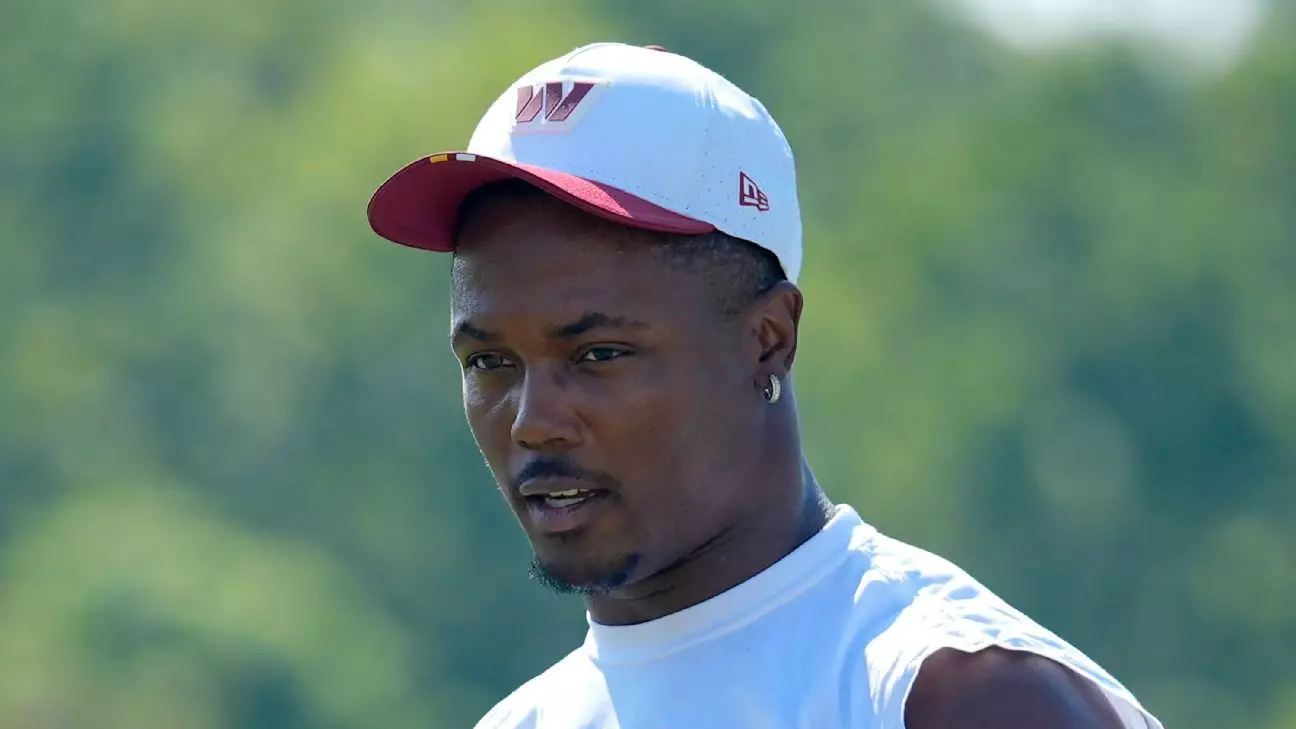In the evolving landscape of professional sports, the case of Terry McLaurin exemplifies the complex interplay between athletes’ aspirations and organizational priorities. As a talented receiver coming off multiple Pro Bowl seasons, McLaurin’s situation highlights broader issues about valuation, loyalty, and negotiation leverage within the NFL. His recent activation off the physically unable to perform list signifies not just his physical recovery but also symbolically underscores the ongoing struggle players face in asserting their worth against the backdrop of team management’s pragmatism. It’s a revealing spectacle of athletes navigating the thin line between professionalism and frustration, all while their careers are subjected to the often impersonal machinations of a corporate sports world.
From a strategic standpoint, McLaurin’s move to return signals a willingness to re-engage with team activities, yet it is layered with underlying discontent. The fact that his activation was described as separate from contract talks hints at a “business as usual” approach, yet beneath this veneer lies a deeper narrative of players pushing back against undervaluation. His anticipation of a lucrative deal mirroring DK Metcalf’s, and the team’s apparent reluctance to meet those expectations, reveal a tension that extends beyond the field. This dynamic exposes the fragility of player loyalty in an era where financial security often trumps team allegiance, challenging the traditional bond athletes once shared with their clubs.
The Power of Public Sentiment and Personal Identity
McLaurin’s public frustrations reflect a shift in athlete activism and a cry for recognition beyond mere statistics. His remarks about building a life in Washington – a city where he’s invested emotionally and financially – elevate his position from a mere football player to a symbol of personal identity intertwined with community loyalty. In an age where athletes use their platforms to voice concerns, McLaurin’s explicit dissatisfaction underscores a desire to be valued not just as a commodity but as a person deserving of appreciation. His decision to delay practices and publicly express disappointment is a calculated move, emphasizing that personal well-being and career fulfillment are as vital as contractual figures.
Furthermore, the tension illustrates a broader societal debate about respect and fair treatment in the workplace. Athletes—like many professionals—seek acknowledgment for their contributions and want to feel genuinely valued by their organizations. McLaurin’s comments serve as a reminder that the game is more than entertainment; it’s a livelihood, an identity, and a testament to years of hard work. The public’s empathy for his stance reflects a growing demand for fairness, demanding that sports organizations recognize athletes’ multifaceted identities beyond their on-field performance.
The Future of Negotiations and the Power Dynamics at Play
The reluctance of the Washington Commanders to meet McLaurin’s financial expectations is emblematic of the larger economic disparities within the league. While the player feels underappreciated for his consistent performance, the organization appears cautious about commitments that could set a precedent for future negotiations. The fact that McLaurin requested a trade but was met with firm opposition from the team illustrates the shifting leverage dynamic—players are increasingly aware of their market value and are willing to challenge the status quo.
This situation encapsulates the fragile balancing act teams must perform: maintaining team chemistry and financial prudence while also preventing their prized assets from walking away or demanding untenable contracts. McLaurin’s frustration and his public stance threaten the traditional quiet negotiations, turning a private matter into a broader conversation about valuation, respect, and power in modern sports. His ability to leverage public opinion and his proven performance record serve as a reminder that player influence is growing, even within the confines of league policies.
In the end, Terry McLaurin’s case can be seen as a microcosm of the modern NFL—a league where talent alone no longer guarantees fair treatment, and where athletes increasingly assert their rights amidst the business realities that dominate the sport. His journey reflects an ongoing reevaluation of what it means to be valued in a highly competitive and profit-driven environment, forcing organizations to confront their obligations not only to their bottom line but also to the personal dignity of their players.


Leave a Reply